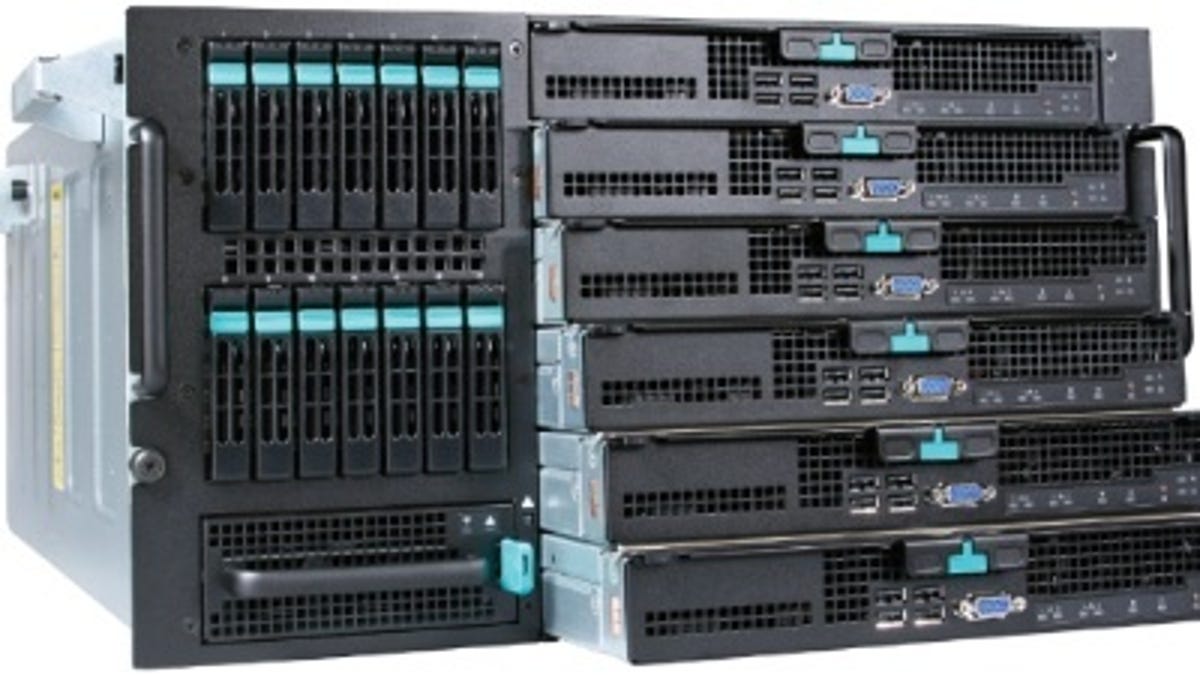Intel's 'Centerton' is first Atom chip for servers
Chip giant will launch a special Atom chip for servers to take on its nemesis ARM.

Intel announced its first Atom chip for microservers at a major company confab in Beijing today.
The new Atom, codenamed Centerton, is a system-on-a-chip, which makes it even more power efficient than less-integrated older Atom chips.
Centerton's power envelope -- what the industry sometimes calls TDP or thermal design power -- is six watts. While not as low as the power envelope for Intel's smartphone Atom, six watts is still a lot more power efficient than Intel's more mainstream chips. Those have power envelopes of 15 watts or higher. To date, Atom has been aimed at small devices like Netbooks and tablets.
Centerton was mentioned in a keynote speech by Intel Vice President Diane Bryant at the Intel Developer Forum being held in Beijing.
The chip has two processor cores and will be available in the second half of the year.
And to say that it's not a direct response to chip rival ARM would be at the very least disingenuous. Hewlett-Packard said last year that it would bring out a server based on an ARM chip from start-up Calxeda, sending shock waves through the server industry. There's also the case of SeaMicro -- which had been designing microservers using Atom chips but was recently purchased by rival Advanced Micro Devices.
Intel describes microservers as "an emerging...server designed for unique data center workloads in which many low-power dense servers may be more efficient than fewer, more robust servers."
And more Intel microserver chips are on the way. An Ivy Bridge based Intel Xeon "E3 LV" chip is on track for the second quarter of 2012. And a 15-watt Sandy Bridge chip will be available in the second half of this year, too.
The big question, of course, is who is going to use the chip? That will be announced later but possible customers could be any of the world's largest server suppliers, including Hewlett-Packard. Customers are planning designs for this processor now, Intel said.

